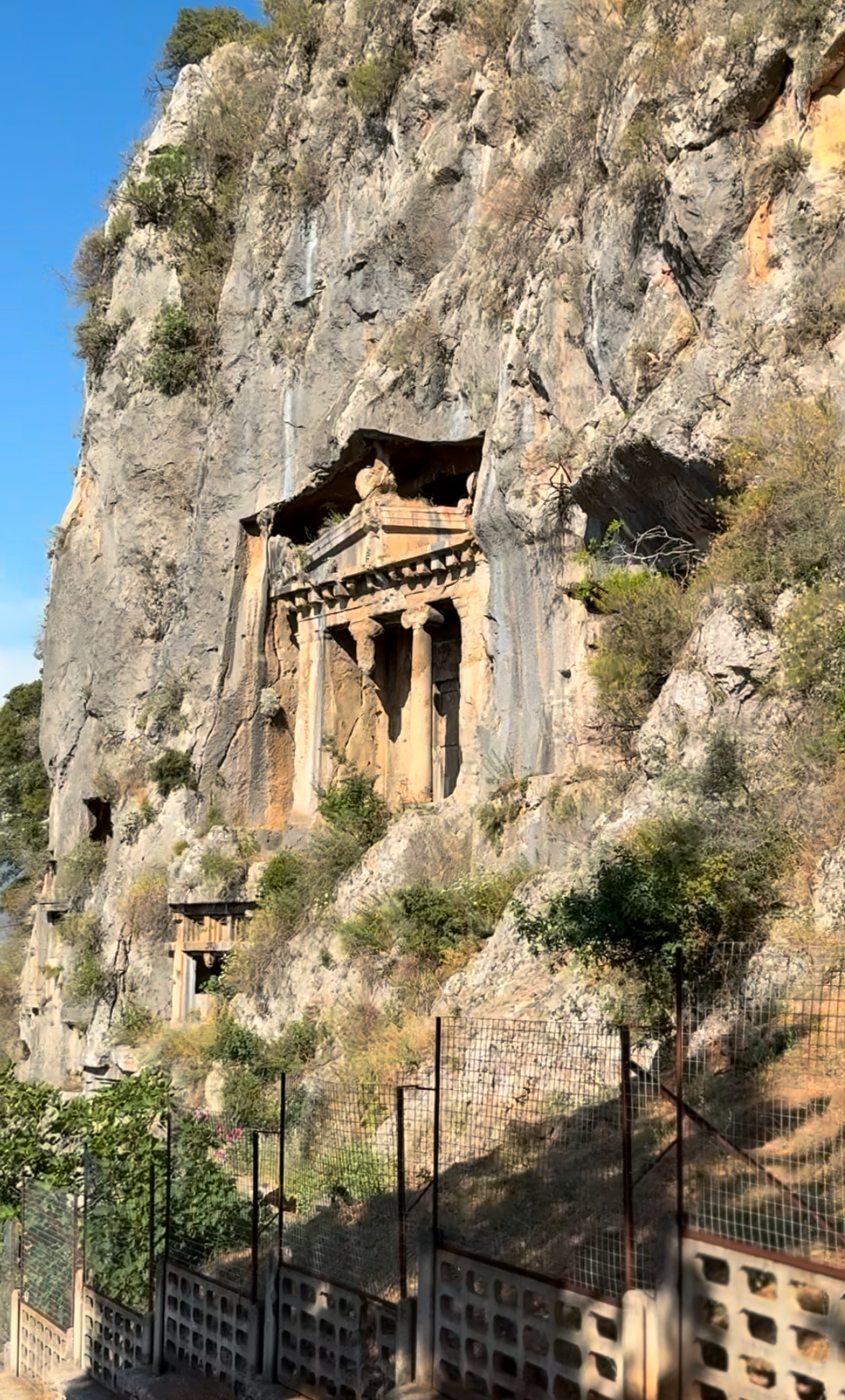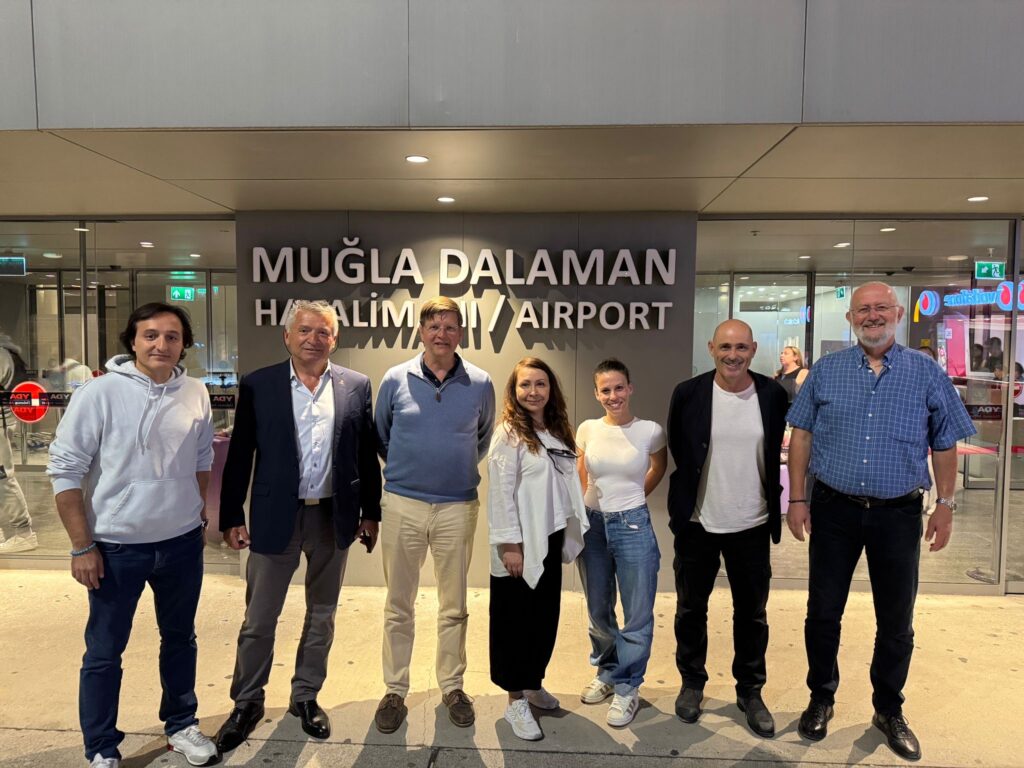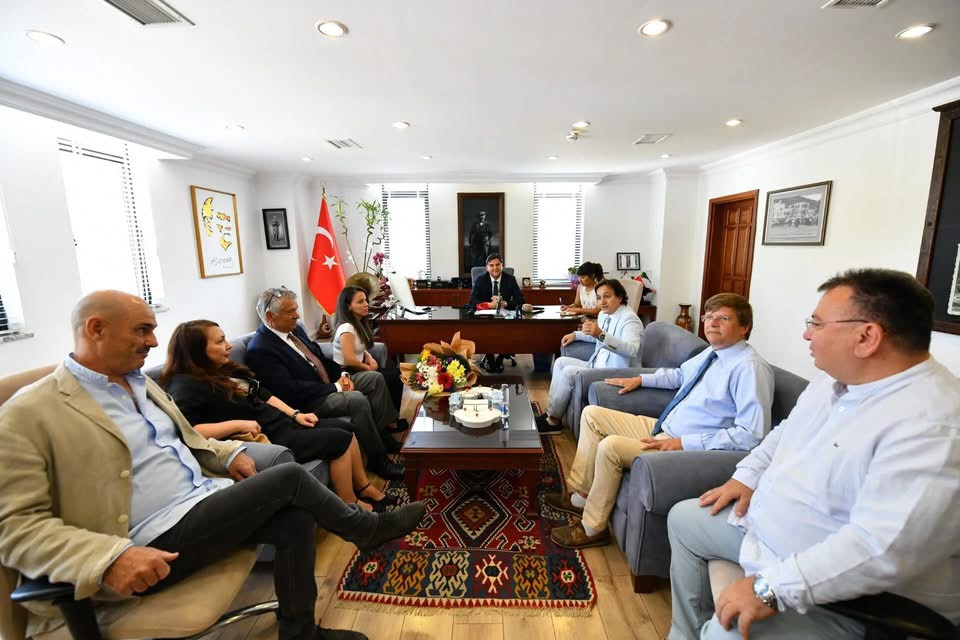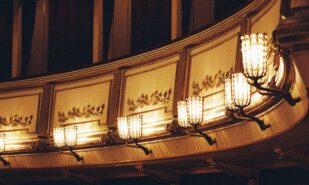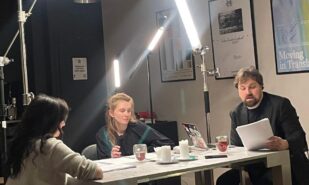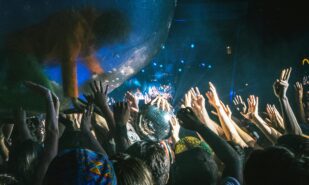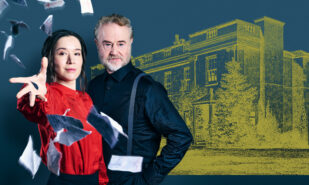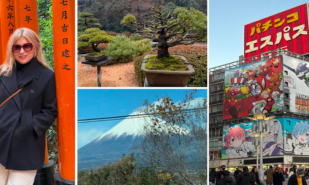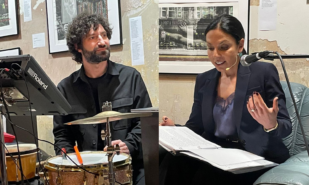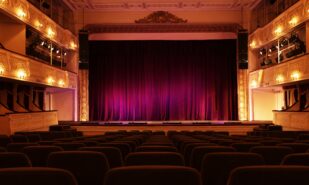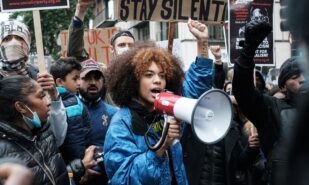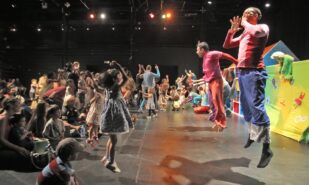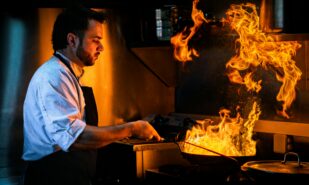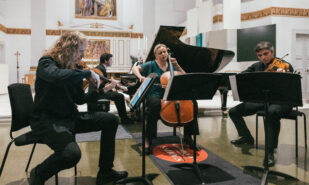From the Travel Notebook: Day One, Turkey, Fethiye
Without the dry format of an official report, this story reads like a seamless journey through time — from the Lycian 4th century BC to the digital year 2025, where the mayors of Fethiye and Marmaris welcome a British delegation of politicians, media representatives, and business leaders to broaden the cultural boundaries between two countries and discuss the future of global tourism. The visit was jointly organised by the municipality and the Fethiye Chamber of Commerce and Industry.
The city welcomes guests with the soft light of the coast, the scent of the sea breeze, and the unhurried rhythm of southern Turkey. Here, antiquity lives side by side with the future, and in the cafés along the narrow streets of the old town, people speak Turkish, English, Russian, and Chinese.
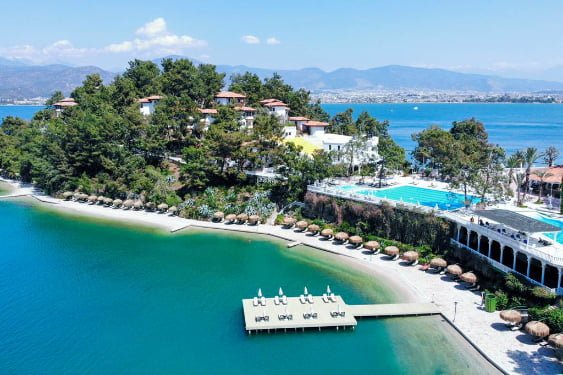
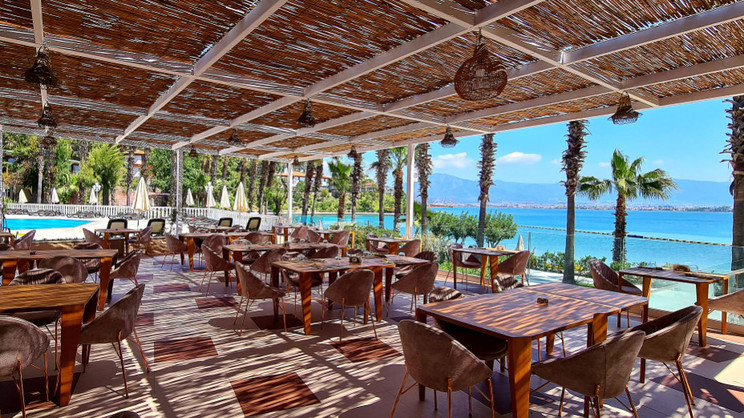
After a four-hour overnight flight from Luton, we settle into Club & Hotel Letoonia, located on a fully private peninsula — one of Turkey’s most picturesque spots with views over the stunning South Aegean Sea. Since 1989, Letoonia has built a reputation as a top-tier vacation destination. The resort spans nearly 700,000 square meters, including three private beaches stretching along two kilometres of coastline. Pine trees, bougainvillea, jasmine, roses. Carved wooden ceilings in the bungalows, all in a traditional local style by architect Nail Çakırhan. Pools, sports courts, restaurants, a spa center, a kids’ club…
***
But the mission continues. Morning. We hurry to meet the Mayor of Fethiye, Alim Karaca. Energetic and forward-looking, Alim Karaca greets the delegation like old friends. He speaks about the city’s future with confidence and numbers: nearly 2 million Britons are expected to visit Fethiye this year, making up 60% of the tourist flow.
“We’re investing 12 million euros in infrastructure: green transport, solar panels, roads. At the same time, 25% of our budget goes to agricultural cooperatives — the restaurant plate must remain local,” he says.
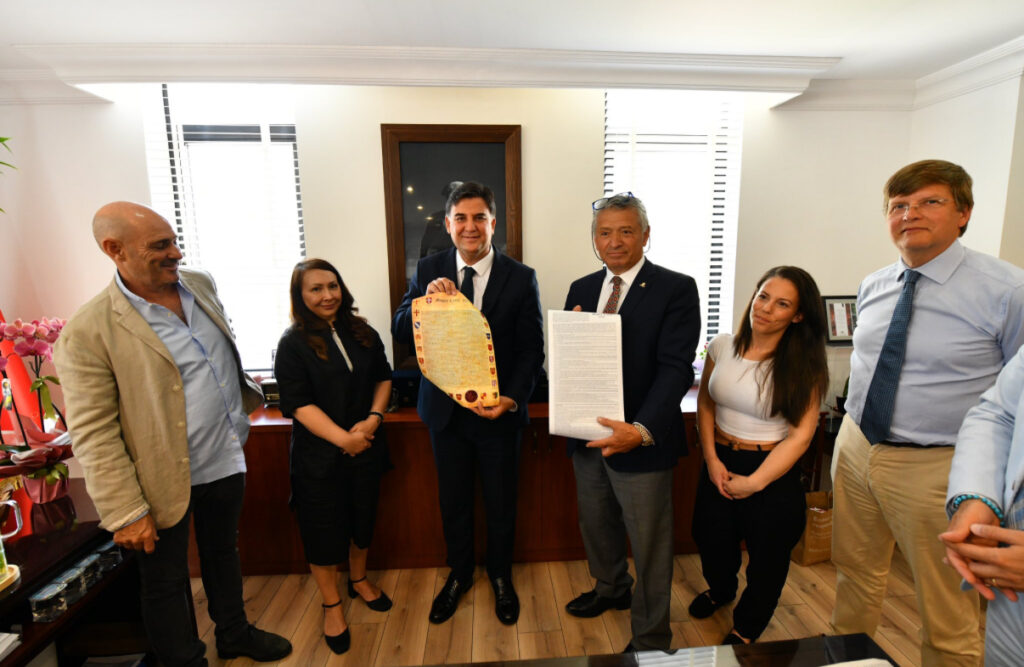
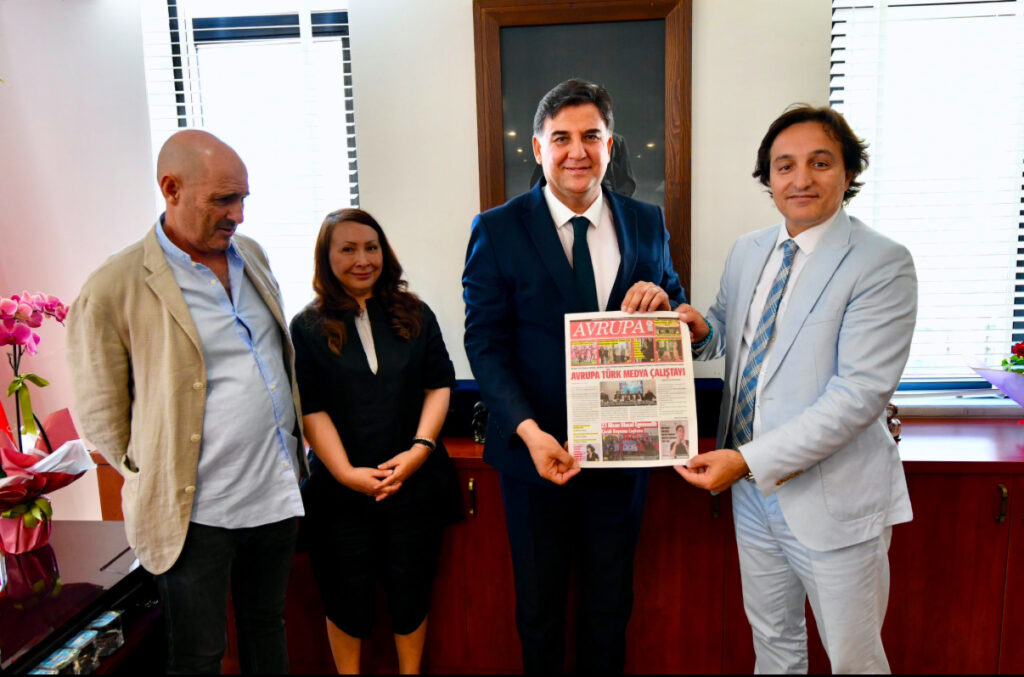
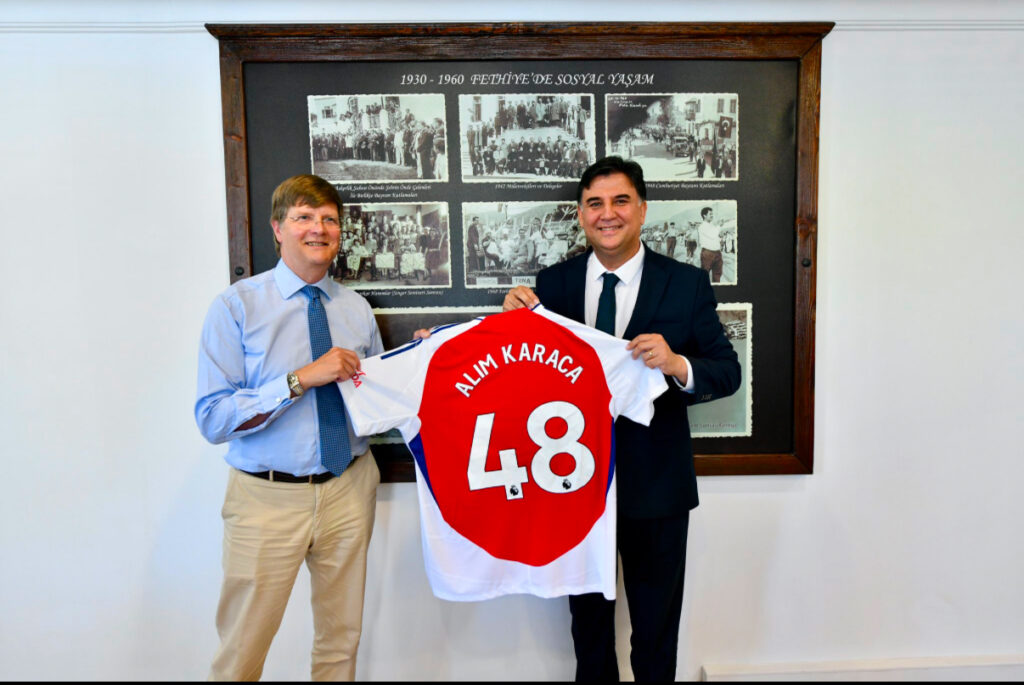
Symbolic gifts are exchanged: an Arsenal jersey from Julian Daly and a copy of the Magna Carta from the former mayor of St Albans. In return — local handicrafts. It’s an exchange not just of gifts, but of trust.
BBC journalist Nigel Gardner asks the mayor some questions:
Does the political situation in Turkey affect tourism? How do locals feel about the British? Do you support Russian expats?
There are more newcomers every year. The main flow comes from the UK, Germany, the Netherlands — and now also from China. The British community is part of Fethiye. Britons are respected and actively involved in city life. Russians are adapting well, too — opening businesses, becoming part of the local community.
And yes, tourism of course depends on the broader political atmosphere. But Fethiye is stable. People feel safe, Alim Karaca replies confidently.
So, you’re not worried?
On the contrary — we worry a lot. Especially due to the constant inspections — inspectors come regularly, the stress is immense.
They say British tourists will travel even to conflict zones if the prices are good. Do you agree?
Brits are the most loyal. Many already have temporary residence permits — some stay through the winter, others come for several months.
And what about the budget? Are you dependent on Ankara?
We receive funding from Ankara, but being in the opposition, it’s less than it could be. We have to cut costs. But we adapt and optimise.
How does your party win elections despite being in opposition?
People see results. That matters more than political slogans.
Do you receive help from Europe?
Not financially. But politically — yes, we hear support. For instance, Italian Prime Minister Meloni recently thanked Turkey for containing the migrant flow.
Are you planning sister city partnerships with UK towns, like Brighton?
That’s very interesting! We would welcome such a partnership. We’re very open to cultural and social exchange.
***
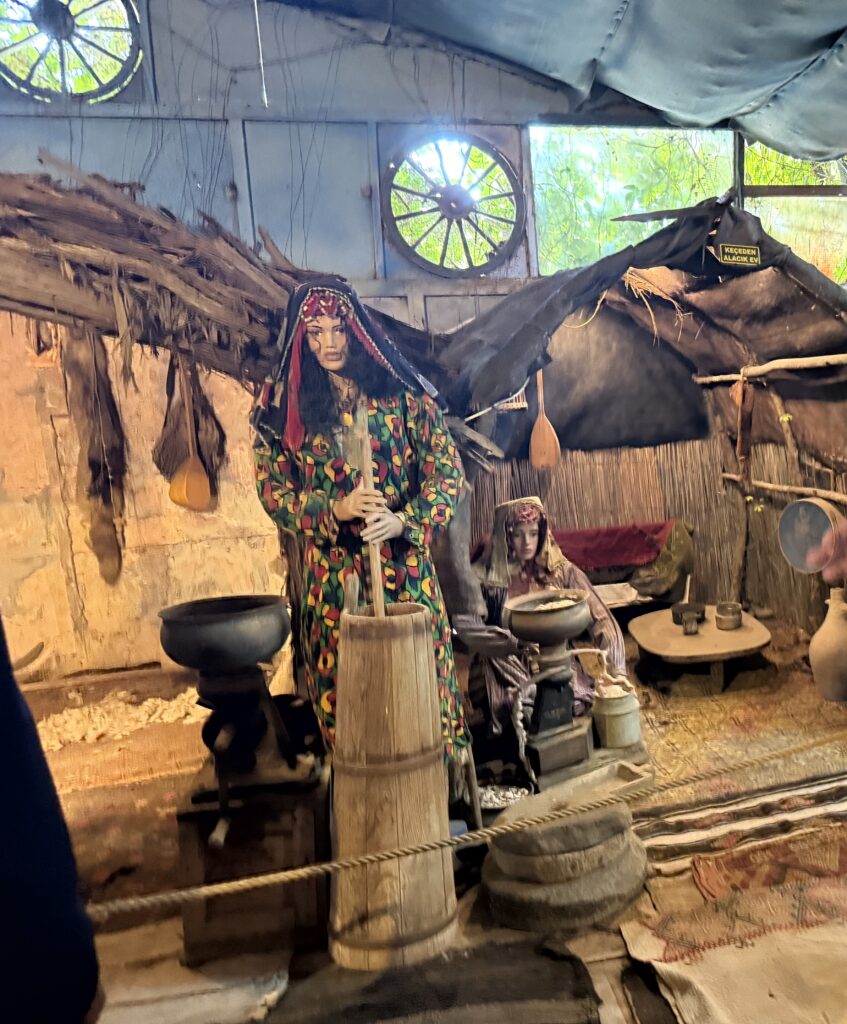
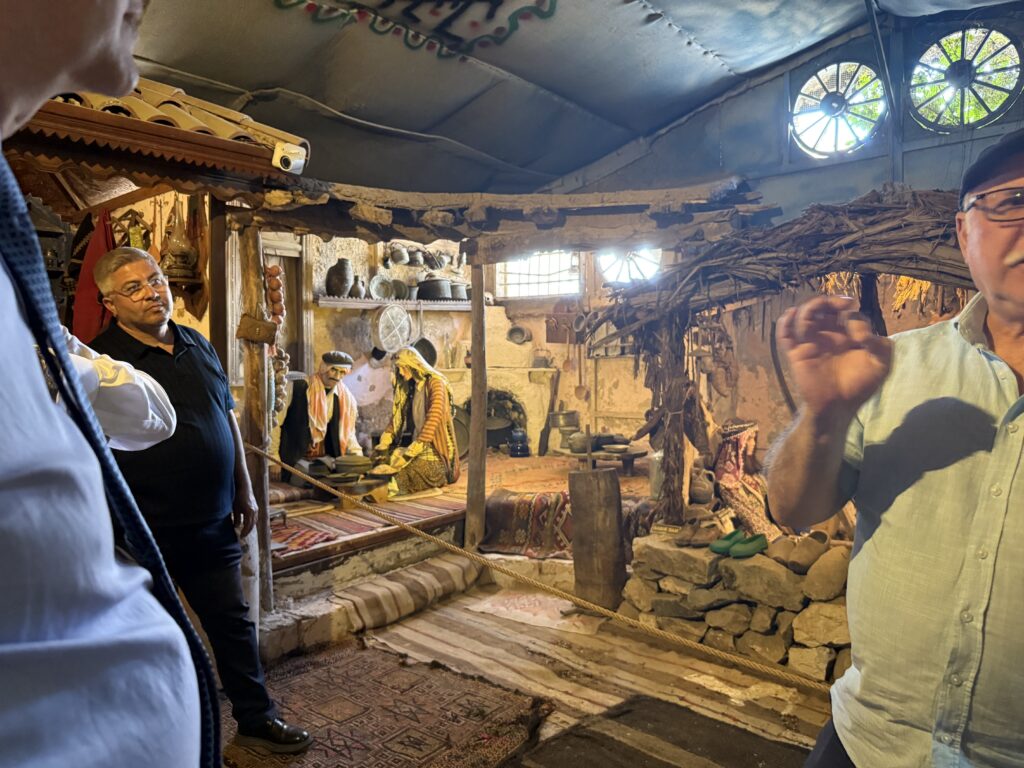
From political discussions, we move on to exploring roots and landmarks. The ethnographic museum created by Ismail Kerimoglu is a true living archive. The Yörüks — nomadic people who still ascend into the mountains in summer. Their black tents, clothing, tools — not just exhibits, but a continuing way of life. Ismail Kerimoglu has preserved memory! Here you can feel the wind of the Taurus Mountains. The Yörüks haven’t vanished — they’ve simply adapted.
***
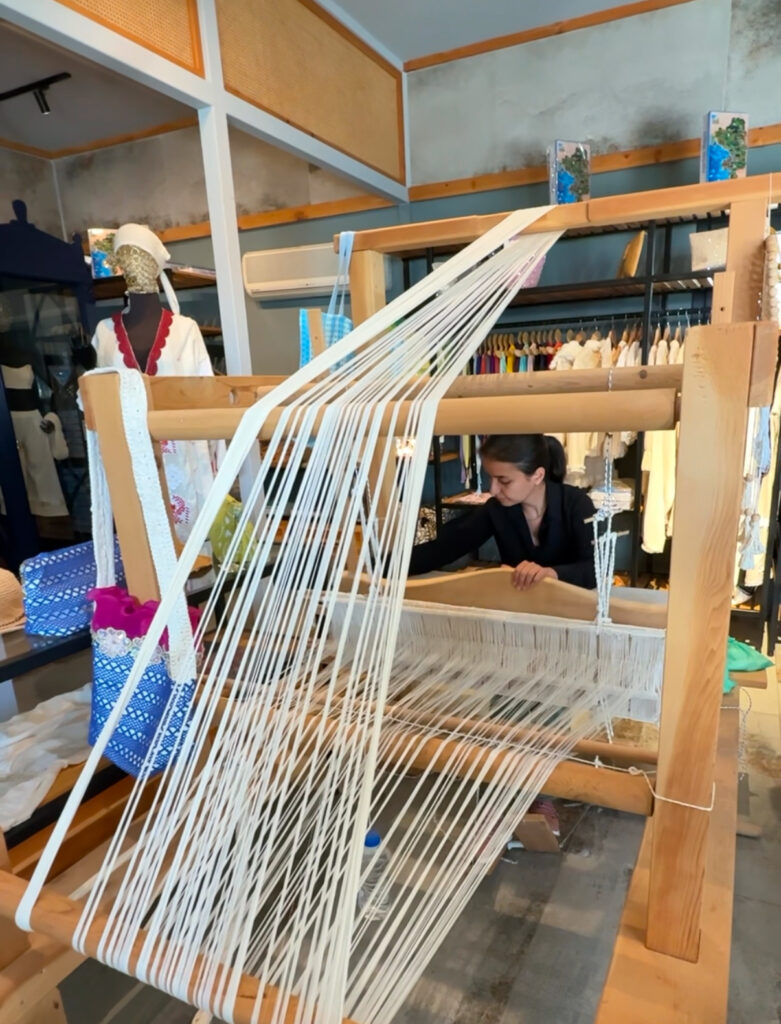
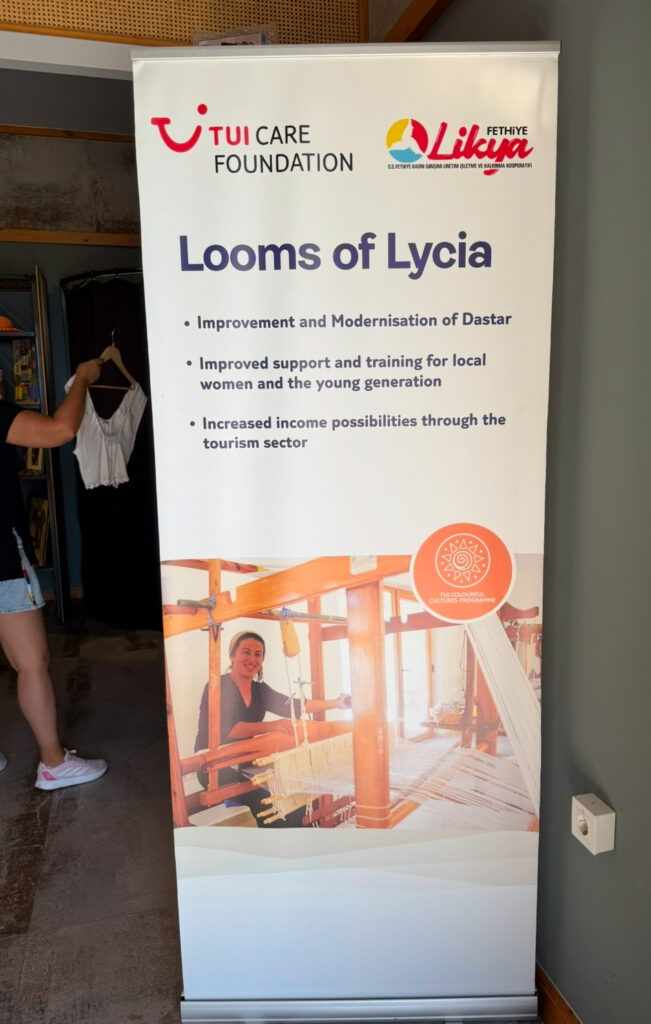
“Looms of Lycia” adds another layer of history. In this small workshop-boutique, women weave and learn the ancient craft of dastar. And it seems that what flows from the loom isn’t fabric, but time itself. Cotton, patterns, dye — all come together in a rhythm that links craft, culture, and freedom.
***
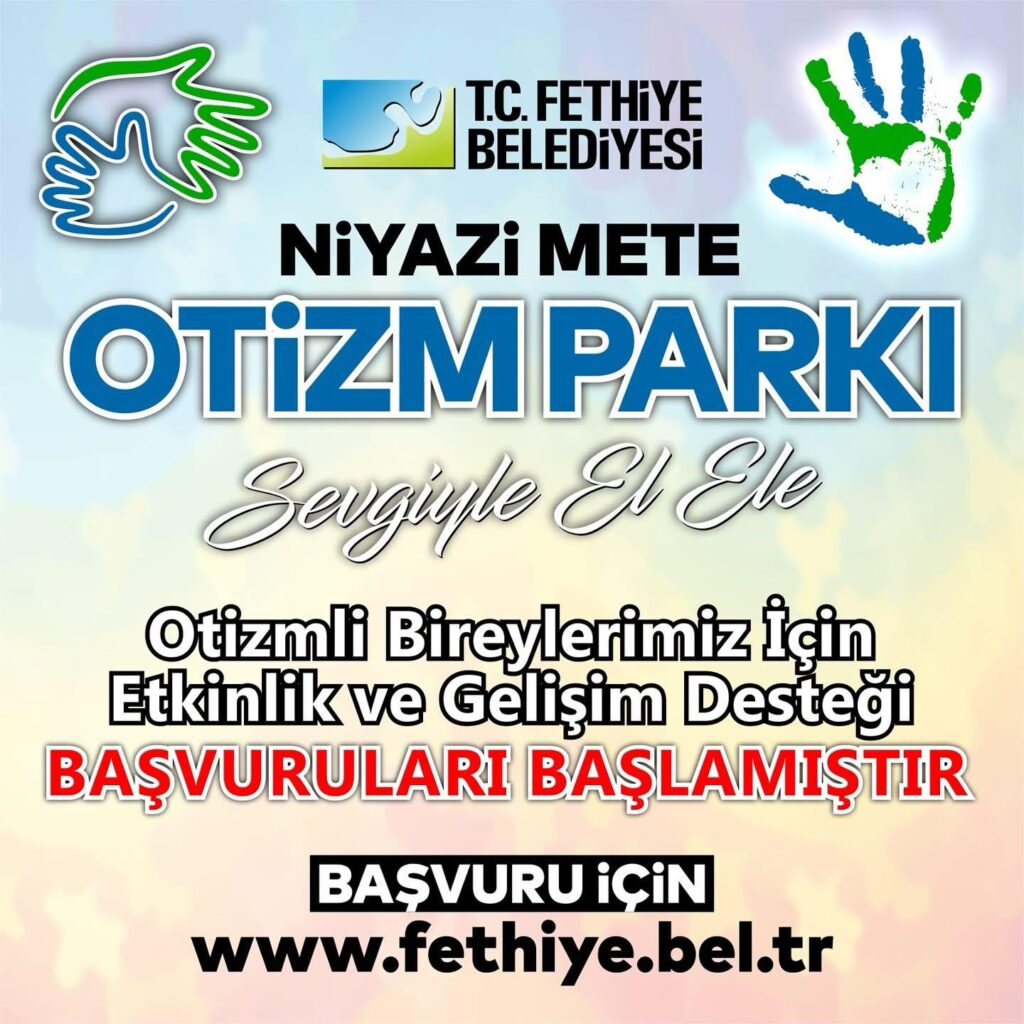
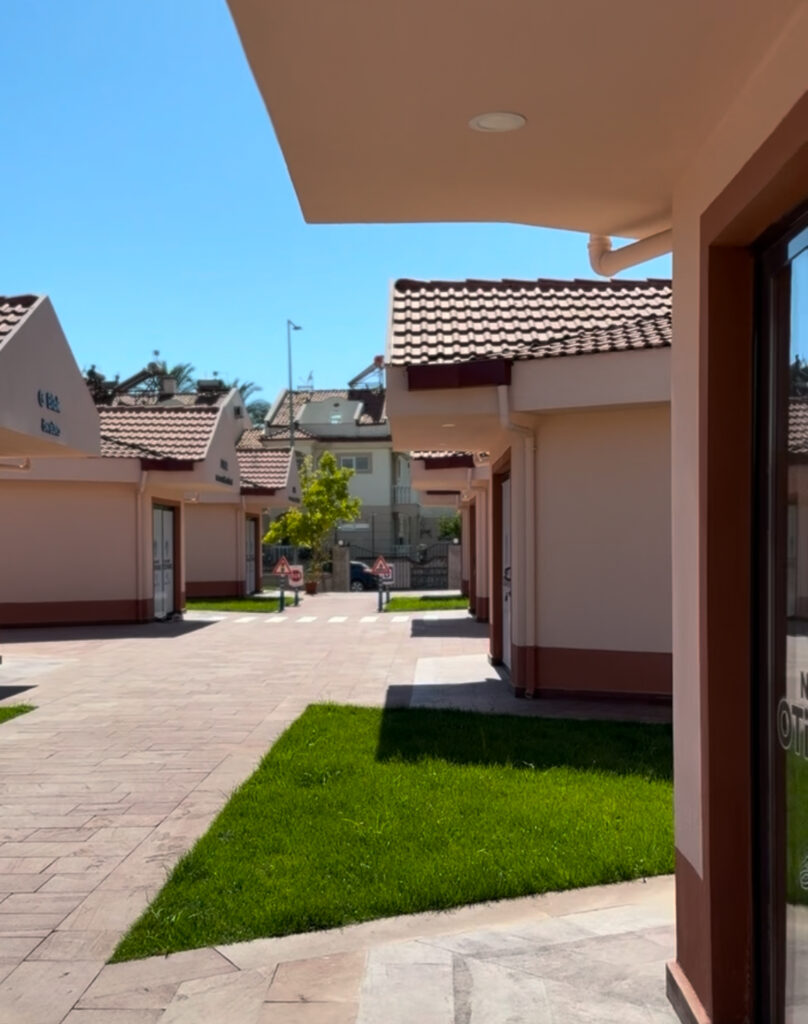
But in this cultural fabric, a new pattern appears — “Otizm Parkı”, the first multifunctional center in Muğla for children with special needs, opened in spring 2025. The project was conceived as a “green haven” — not just a social institution, but a place where sensory gardens, art studios, and physical activity pavilions form a therapeutic landscape. Entrepreneur Niyazi Mete fully funded it (around 10 million lira), the Fethiye municipality provided the land, and care is offered by volunteers from Otizm Derneği. In Akarca Mahallesi, there are now eight single-story houses, tactile pathways, and a café with a menu designed by nutritionists for autistic children. The center is free, serves up to 120 people a week, and has become a place not only of therapy, but of acceptance.
***
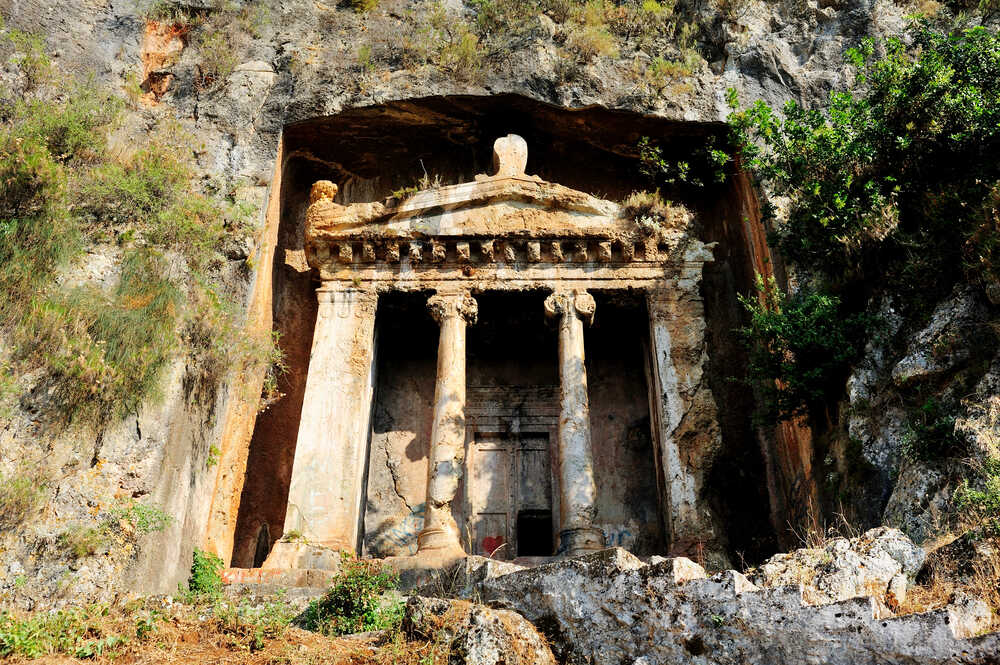
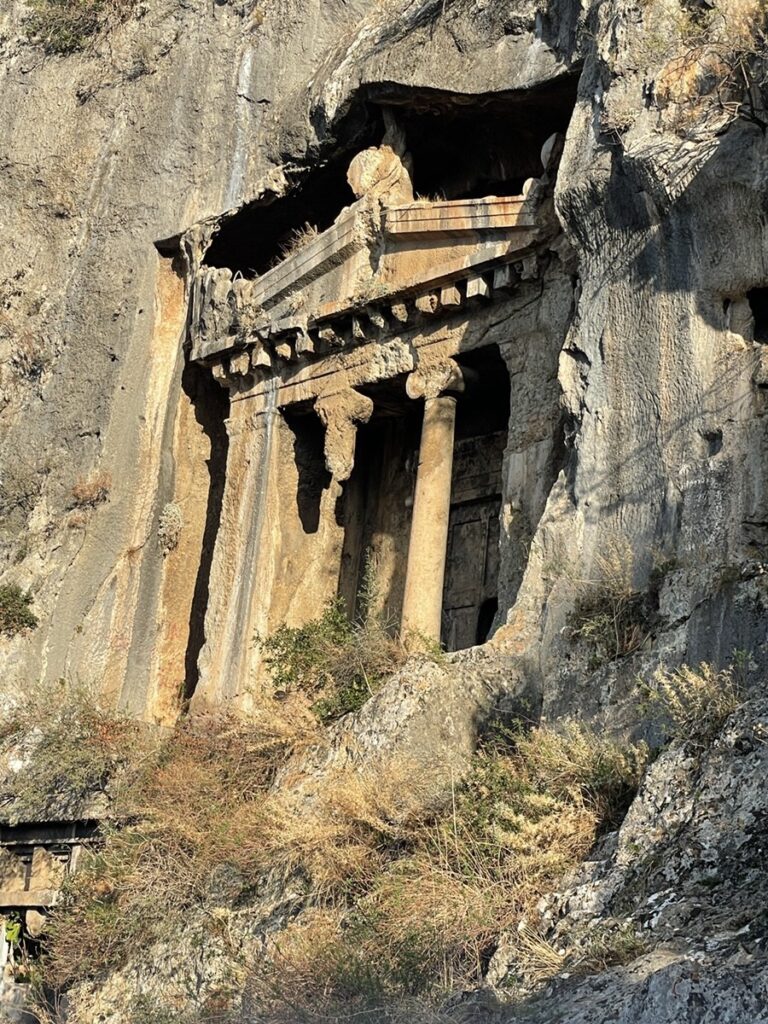
Modern Fethiye stretches over the ancient city of Telmessos, once famous for priests who interpreted dreams. We climb to the Lycian rock tombs. Carved into the cliffs, with ornate columns, they remind us that these lands were once inhabited by the Lycians — considered ancestors of the ancient Greeks. One inscription, dating back to 350 BC, reads: “Aminthas, son of Hermagios.” According to ancient beliefs, the soul turned into a siren and ascended to the sky after death, so burials were placed as high as possible — on cliffs, closer to the heavens. And if you listen closely, the stone cliffs still seem to whisper: everything passes, and life goes on.
***
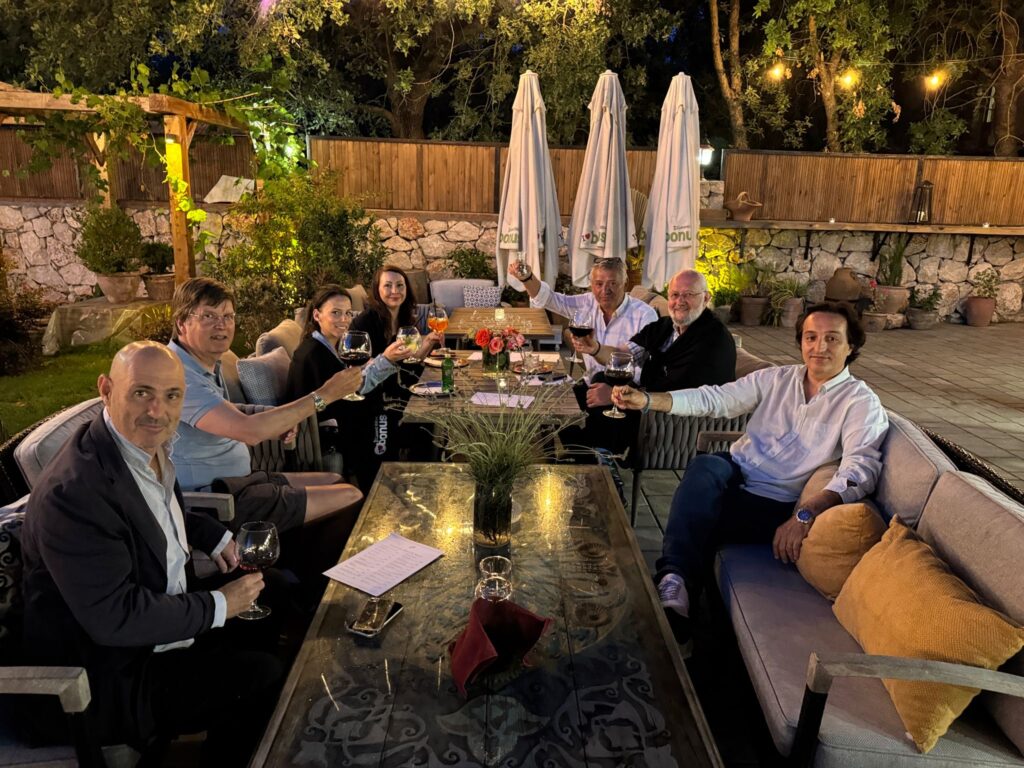
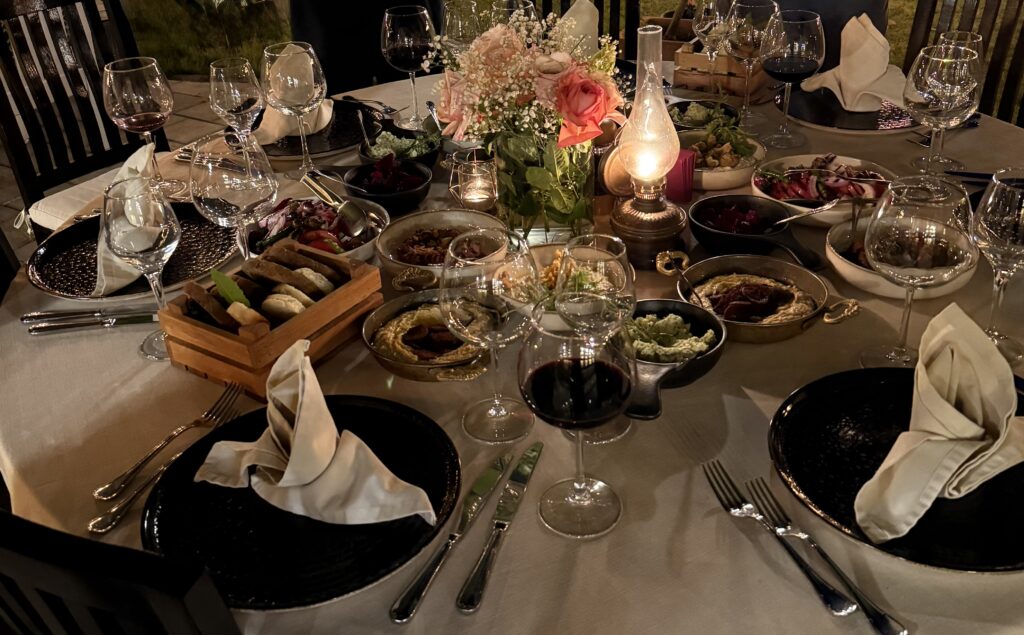
The day ends at Izela — a restaurant without pretension, but full of character. Beneath trellises and lanterns — a cheese plate and red wine. The sea nearby. Some talk about twinning with Brighton, others about tourism statistics, and some remain silent. Because sometimes, the best way to understand a city is simply to listen to it. After all, Fethiye isn’t just a point on a map. It’s a place where history begins — and a rhythm you want to align your breath with.
(To be continued)

